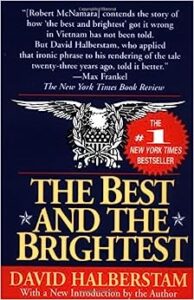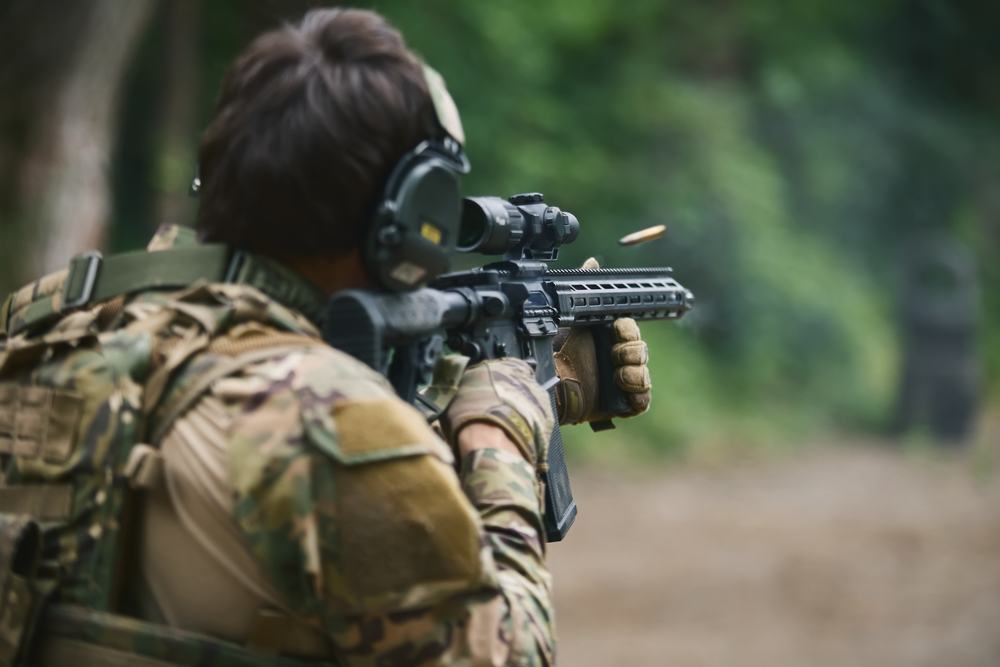There’s a series of questions I often receive from people around me who know of my military background, particularly since Russia invaded Ukraine. These questions, while no doubt well-intended, are often ill-formed. Here, I want to identify these questions and explain what I think they get wrong.
A common question is what I predict will happen – how will the war end, who will win, how long might it go on, things like that. To questions like these, the only honest response I can give is, “I have no earthly idea, and neither does anyone else.” Prior to the invasion, there was a widespread consensus that the Russian military would quickly plow over the Ukrainian armed forces leading to a swift capture of Kyiv. Outside observers drastically underestimated both the resilience of the Ukrainian military and the ineptitude of the Russian military. Where things will go from here is equally opaque to me, and I doubt very much anyone else can effectively say otherwise.
Sometimes, I’m asked how I think Ukraine could most successfully drive out Russia. This, too, falls into the “I have no idea” category. Simply having a military background doesn’t give someone the kind of insight needed to make that kind of call. In my last couple of years in the Marines, I was an instructor at the rifle range, running both annual rifle requalification training as well as pre-deployment combat training. If you want to know how to effectively fire particular weapons, I can provide excellent advice.

If you want to know how to effectively run a major military campaign, however, I possess no special insights. Indeed, I’ve become increasingly skeptical over the years that anyone has the kind of insight needed to make justifiable and accurate predictions on matters like this. Even the best and the brightest, with all their training and education, can be made fools of by the randomness and overwhelming complexity of the real world.
But the comment I find most objectionable is when someone suggests to me that by having served in the military, I have gained a special “moral authority” in my opinions on military matters. I reject this idea with every fiber of my being. The idea that my thoughts on these matters should be evaluated by anything other than the merits of the arguments I make is something I find immensely ugly and frankly insulting. Military experience bestows no special moral authority in one’s opinions. No amount of skill in firing a rifle will give you any special insight on when it’s okay to pull the trigger.
Some might say this additional authority comes from the fact that military members have a special insight that comes from bearing the costs of military actions, and thus can offer a more informed opinion on whether such actions are “worth it.” There are a couple of problems with this. First, to know whether something is worth it, we need to know more than just the costs, we also need to make an accurate and justified account of the benefits. As mentioned before, I doubt anyone has the kind of knowledge needed to make such an account. Second, it’s simply not true in a country with a volunteer service like the United States that members of the military uniquely bear the costs of military engagement – here, I outsource the explanation for why that is to Don Boudreaux, who, as is inevitably the case, makes the argument better than I could hope to myself, along with a relevant postscript.
But place those issues to the side – indeed, I’ll assume for the sake of argument that both points are mistaken. Even then, it’s far from clear that military experience – even wartime experience – gives one special insight into whether nor not such actions are justified. There are good reasons to suspect the opposite. One reason is a variation of the Benjamin Franklin effect. This quirk of human psychology was noticed by Franklin, who suggested that the best way to get someone to like you isn’t by doing a favor for them, it’s by getting them to do a favor for you. This effect takes advantage of the fact that actions can drive our perceptions and opinions – we want to believe the way we’ve acted in the past is justified. The Benjamin Franklin effect takes advantage of this – “I did something nice for that person, so I guess that means I like them.” When the actions taken go beyond a simple favor – when they involve great difficulty, risk, hardship, and even tremendous loss – there is every reason to believe those who have endured the experience will struggle mightily to convince themselves such actions must have been justified and worthwhile. To acknowledge the opposite is often something people find too difficult to bear. This might strike some people as an offensive line to take, but as far as I can tell, it is true. And we must resolve to never find the truth of any matter offensive – particularly when war and peace are concerned. There’s too much at stake.


READER COMMENTS
David Henderson
Jun 27 2023 at 3:14pm
Very nicely said. I’m preparing for a Zoom call and so will give a longer comment later.
steve
Jun 27 2023 at 5:16pm
Hmmm, I have never had anyone suggest I had some moral authority because I had been in the military. You hang with a different crowd than I do. I agree that doesnt really exist. What has happened, very occasionally, is that someone will assume I have some special knowledge about how the war will be conducted because I served. My knowledge in that area is very limited and largely out of date. Whether or not you think a given war is justified will rest upon your beliefs and values. Those, sorry economists, may not even include economic reasons. Those might be informed by your personal experiences but I dont know if military experience would give special insights. Maybe if you had experience in assessing how the Russians handled the Chechens after their most recent war?
However, there are people who have spent a lot of time doing planning. A lot of people who have spent time assessing both the Ukraine and Russia militaries. Those people can be pretty good at laying out the options that the two militaries might choose. Their strengths and weaknesses. They wont be able to accurately predict which options will be chosen.
I think a finer use of words avoids getting into the pedantic arguments Boudreaux seems to like. People in the military clearly do not solely bear the “economic costs” of a war. I have seen some estimates that suggest, on net, they lose money when we are at war since they lose a caregiver at home, there are a lot more divorces, etc, but I have not seen that weighed against the per capita costs paid by the taxpayer. Regardless, I think what could be said is that the people in the military bear much” higher risks of death and injury” in a war.
Steve
David Seltzer
Jun 27 2023 at 5:19pm
Kevin, well said. I was stationed at Sangley Point, Philippines, 1962 to 1964. I was an air craft mechanic in Naval Squadron VP 40. The squadron’s primary duty was monitoring foreign sub activity over most of the South China Sea. Two observations from that experience: As a mechanic, I was assigned a specialty that was far removed from strategic planning, as it were. The second and more to the point of moral authority borders on the impossible as our individual concepts change over time and with experience. Case in point. Our Sb-5p Marlin seaplanes were capable of carrying a nuclear device. Loading drills with a simulated device was conducted monthly. I was asked, along with each crewmember, by the XO , whether I found the use of nuclear weapons morally repugnant. Being 20 and really stupid, my immediate answer was no. I never hesitated to affirm. Today, If I’m asked that question I would tie myself into knots trying to justify their use.
Pete S
Jun 27 2023 at 5:52pm
It would be great to get someone like Phillip Tetlock to assess military expertise as he has done with political expertise.
But perhaps in terms of who will win wars it is political expertise rather than military expertise that matters.
This post describes very well the difference between areas where people have real expertise, such as in shooting weapons, vs where they do not as in predicting the outcome of wars.
Ahmed Fares
Jun 27 2023 at 9:17pm
re: why we don’t see any big arrow moves by the Russians
It’s not just Ukraine that the Russians are fighting against, as this quote from a blogger shows:
This from another blogger saying the same thing:
So the Russians fell back on using artillery in what is now attrition warfare, where the Russians have a 10-to-1 advantage against the Ukrainians in the number of shells fired, and by extension the same ratio of casualties.
Monte
Jun 27 2023 at 9:34pm
To be more logically consistent with the idea of firing a rifle, the first sentence should read “Military training bestows no special moral authority in one’s opinions.”
For purposes of this discussion, I think it would also be helpful to distinguish between moral authority and legitimate authority, or jus ad vellum, the conditions under which a country might resort to war:
*
The only moral authority one might expect a trained soldier to exercise is jus in bello, or his or her oath of enlistment, the UCMJ, rules of engagement, and international humanitarian law (ie. the Geneva Conventions). However, I would argue that veterans of war, particularly those in high command, have gained keen insights from their experience that would translate into what we might call the moral authority, or jus post bellum, to set the terms of past, present, and future conflicts.
Monte
Jun 27 2023 at 9:37pm
That’s jus ad bellum, the conditions under which a country might resort to war.
BS
Jun 29 2023 at 11:47am
No appreciation/estimate is worth very much without a good understanding of the foe, which is beyond most soldiers and officers except at the nuts-and-bold tactical level. For the moral issues, I look to the moral philosophers.
Comments are closed.